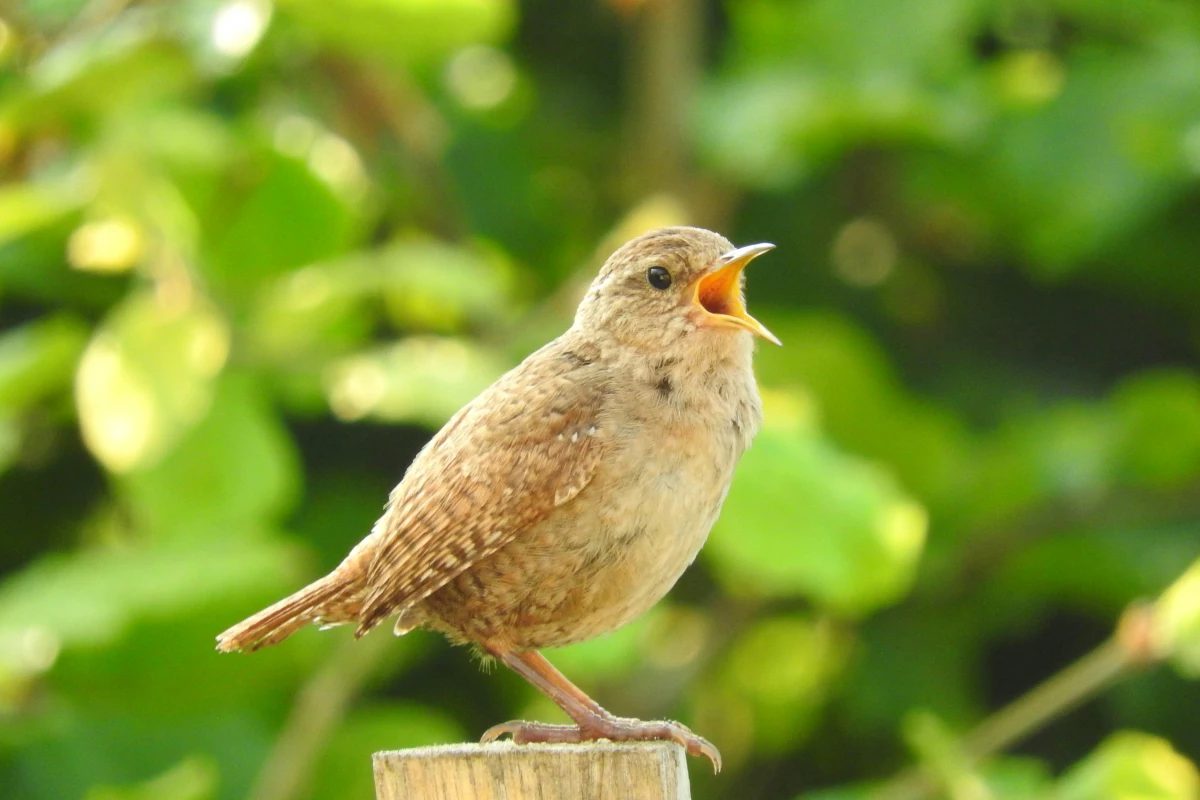Science
Birds Extend Daily Concerts by Nearly One Hour Due to Light Pollution

Recent research reveals that birds are singing for nearly an hour longer each day, with findings suggesting that light pollution is a significant factor influencing this behavior. Researchers from Southern Illinois University and Oklahoma State University conducted an extensive analysis of 2.6 million instances of birdsong, examining both the onset of morning calls and their cessation in the evening.
The data came from the BirdWeather project, a citizen science initiative where enthusiasts deploy bioacoustic devices in their yards to capture environmental sounds. The project utilizes specialized software to isolate bird songs from other noises, creating a real-time map of bird locations and activities.
Impact of Light Pollution on Birds
The study focused on the singing patterns of 583 diurnal species. Researchers found that birds inhabiting areas with high levels of man-made light pollution sing for an average of 50 minutes longer than those in darker environments. Specifically, birds in the brightest regions commence their songs approximately 18 minutes earlier and continue singing for 32 minutes later into the evening than their counterparts in less illuminated areas.
The research indicates that species with larger eyes, open nests, and broader ranges are particularly affected by light pollution. Notably, these changes in singing behavior are most pronounced during the breeding season. The implications of prolonged singing remain uncertain, with potential effects that could be positive, negative, or neutral concerning the health of the birds.
As stated in the study published in the journal Science, “On the one hand, 50 minutes of prolonged activity may represent a substantial loss of resting time, particularly during the breeding season, which is an already demanding period for birds.” The authors continue by suggesting that if birds can rest effectively during the day or engage in more intense sleep during inactive periods, the impact may not lead to sleep debt or associated health issues.
The Broader Implications of Light Pollution
Currently, it is estimated that approximately 80% of life on Earth resides beneath light-polluted skies, where artificial illumination disrupts the natural darkness that would typically prevail at night. This phenomenon, referred to as skyglow, has been linked to several ecological problems, including the deaths of insects that collide with lights, disruption of nocturnal bird migration patterns, and alterations in seasonal hormonal rhythms.
Moreover, light pollution has serious repercussions for sea turtles, which can become disoriented by artificial light when nesting, leading hatchlings astray as they attempt to navigate towards the ocean.
The researchers emphasize that understanding the effects of artificial light on avian behavior is crucial. They advocate for further research and potential governmental action to combat light pollution. “Further accumulation of global data may also motivate development of intergovernmental policy,” they suggest, drawing parallels to climate change initiatives. “Restoring the darkness of our nights is a preeminent challenge for 21st-century conservation and demands global cooperation.”
As awareness of the consequences of light pollution grows, the need for informed action becomes more pressing, highlighting the delicate balance between human activity and the natural world.
-

 Lifestyle3 months ago
Lifestyle3 months agoLibraries Challenge Rising E-Book Costs Amid Growing Demand
-

 Sports3 months ago
Sports3 months agoTyreek Hill Responds to Tua Tagovailoa’s Comments on Team Dynamics
-

 Sports3 months ago
Sports3 months agoLiverpool Secures Agreement to Sign Young Striker Will Wright
-

 Lifestyle3 months ago
Lifestyle3 months agoSave Your Split Tomatoes: Expert Tips for Gardeners
-

 Lifestyle3 months ago
Lifestyle3 months agoPrincess Beatrice’s Daughter Athena Joins Siblings at London Parade
-

 World3 months ago
World3 months agoWinter Storms Lash New South Wales with Snow, Flood Risks
-

 Science3 months ago
Science3 months agoTrump Administration Moves to Repeal Key Climate Regulation
-

 Science2 months ago
Science2 months agoSan Francisco Hosts Unique Contest to Identify “Performative Males”
-

 Business3 months ago
Business3 months agoSoFi Technologies Shares Slip 2% Following Insider Stock Sale
-

 Science3 months ago
Science3 months agoNew Tool Reveals Link Between Horse Coat Condition and Parasites
-

 Sports3 months ago
Sports3 months agoElon Musk Sculpture Travels From Utah to Yosemite National Park
-

 Science4 months ago
Science4 months agoNew Study Confirms Humans Transported Stonehenge Bluestones









